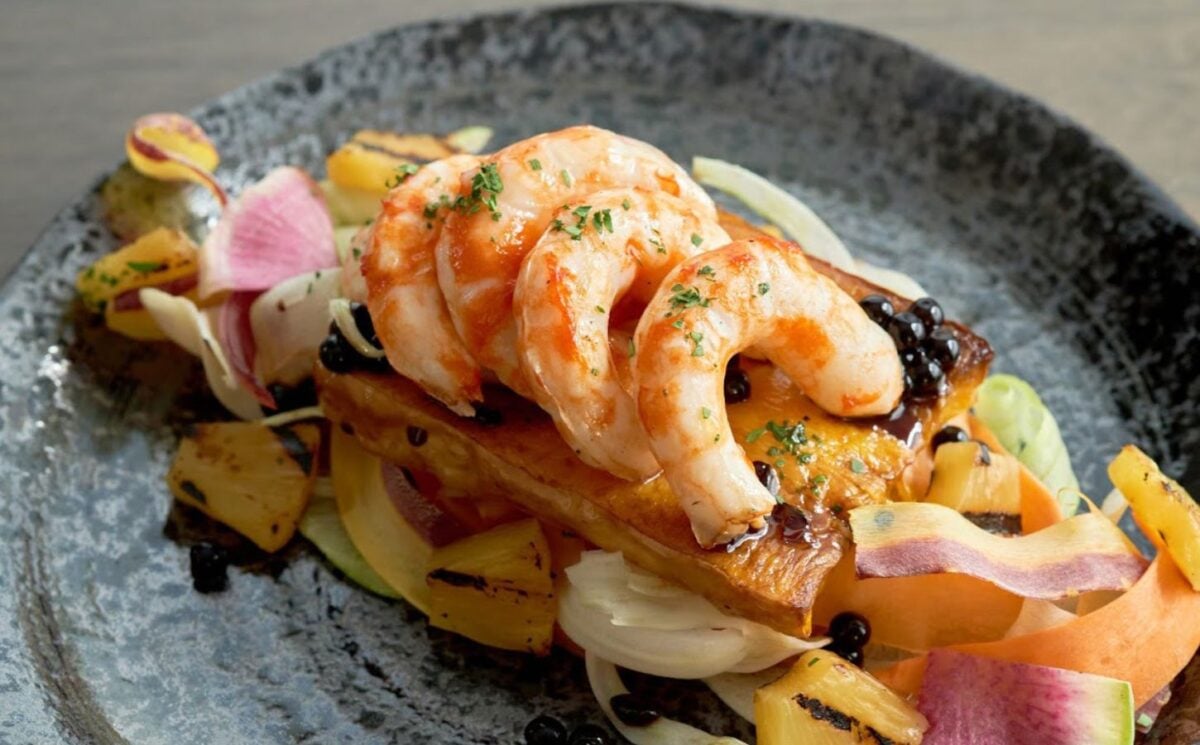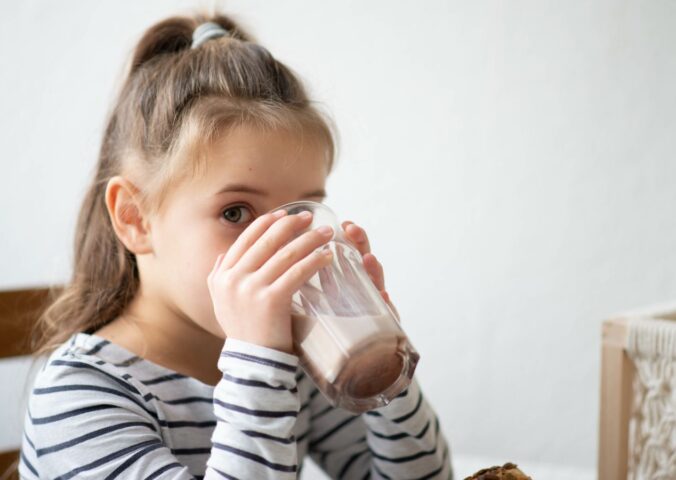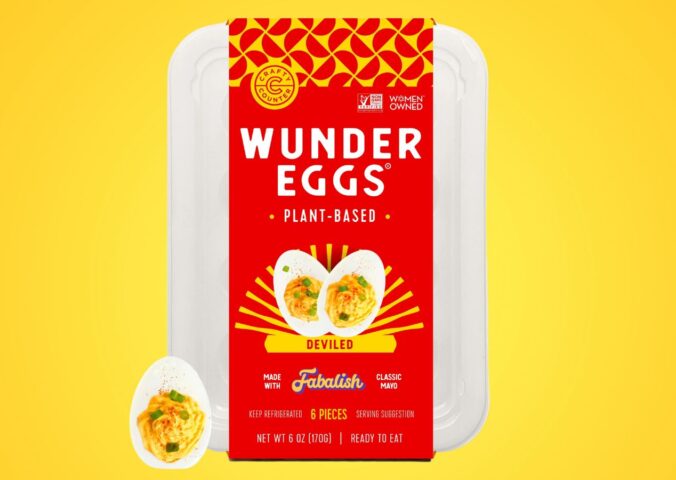Back in 2021, the Food Institute dubbed vegan seafood “the next big thing” in plant-based eating. Indeed, vegan seafood brands have proliferated recently. The products have become ever-more realistic in mimicking the taste and texture of fish, while some provide a healthy dose of protein and omega-3s.
This is good news for marine life. Decades of overfishing to meet growing global demand for seafood has depleted many fish species. Some fish communities have collapsed entirely, with serious knock-on effects for other marine animals. Fishes* are also sentient, intelligent, and have the ability to suffer – which they do when they are dragged out of the water in nets or on fishing hooks.
Fish is considered by some to have various health benefits. So how does vegan seafood stack up health-wise? And what are the best brands on the market? Here is what you need to know.
What is vegan seafood?
Fish filets, salmon, tuna, calamari, prawns, crabsticks, and even lobster can all be made from plants these days. These products aim to replicate the flavors, textures, and in some cases the nutritional content of the animal-based equivalents without the harms to animals or the environment.
What is vegan seafood made from?
There are almost as many ways to make vegan seafood as there are products on the market. Soy, seaweed, yeast, legumes, and various vegetable oils and starches are common. The popularity of soy in these products is partly down to its content of omega-3 fatty acids, as well as the fact it’s low in cholesterol and saturated fat.
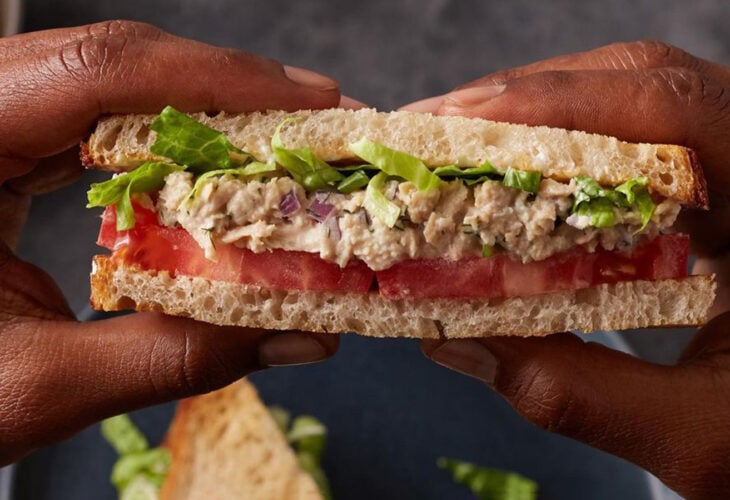
But there are also faux shrimp made from peas, seaweed, and konjac root; “cod” burgers made from jackfruit; and “tuna” made from pea and wheat protein. Good Catch, one of the most well-known vegan seafood brands, uses a blend of peas, chickpeas, lentils, soy, fava beans, and navy beans to make its products.
The vegan seafood market
The 2021 documentary Seaspiracy, which revealed the devastating impacts of industrial fishing, seems to have helped to boost consumer interest in vegan alternatives to seafood. The market has indeed grown since then, outpacing total plant-based meat sales in 2022. But plant-based seafood alternatives still only currently account for a tiny fraction of seafood sales – only 0.1 percent in the US.
Projections for the industry’s future are optimistic, however. Globally, the market was worth USD $62.7 million in 2022 and is expected to grow by a third each year to reach $308.3 million by 2028.
Investors are pouring money into research and development of vegan seafood products. In the first half of 2022, funding for the sector hit USD $178 million, though this was for cell-cultured seafood as well as plant-based and fermented products. Cell-based (also known as “lab-grown” meat) isn’t considered to be vegan as it’s real meat that requires cells to be extracted from animals.
Plant-based seafood companies that have seen significant investment include: Good Catch with $26.35 million secured in 2021; Israeli brand Plantish with $12 million in 2022 to develop its plant-based salmon filets; and plant-based salmon and tuna brand Current Foods with $18 million also in 2022.
Is vegan seafood healthy?
Most vegans drop animal products from their diets to reduce their impact on animal suffering, rather than to be healthy. But a growing number of seafood brands are offering products with some similar nutritional values. “People typically turn to conventional seafood for health benefits. And so being able to come really close to those benefits is extremely important on the plant-based seafood side,” Jen Lamy, the sustainable seafood manager for the Good Food Institute (GFI), told the BBC in 2020.
Vegan seafood products can be a good source of protein as well as omega-3s. Indeed, many of these products contain the ingredients, such as algae, that give fishes their omega-3 content.
Health issues with eating fishes
Though people generally believe seafood to be healthy, many are allergic to seafood, particularly shellfish. There are also concerns over the accumulation of heavy metals and other toxins inside the bodies of fishes.
Polychlorinated biphenyls (PCBs), industrial chemicals which were banned in the 1980s, still pollute water and soil. The highest concentrations of them are usually found in fish. PCBs have been linked to various health problems and are the reason that pregnant and breastfeeding women are supposed to limit how much of some kinds of fishes they eat.
Mercury is a neurotoxin that also accumulates in fishes more than in other foods. Some nutrition experts argue that these health risks are still small and are outweighed by the health benefits of eating fishes. They also note that eating farmed fishes can lower the risk of ingesting toxins further because farmed fish feed is cleaned to remove toxins.
But since farmed fishes are eating unnatural diets, their content of omega-3s is actually declining, negating the purported benefit of eating them. With plant-based sources of omega-3 and other nutrients found in fishes becoming more readily available, it is possible to gain those benefits while eliminating the risks of toxic contamination.
Are vegan alternatives healthier?
Vegan seafood products made from legumes and ingredients like wheat protein gives them a good protein content – between 12 and 21 grams – with no saturated fat or cholesterol. They usually have a decent percentage of iron too, at between nine and 15 percent of recommended intake. But some are high in sodium at around 20 percent of the daily recommended amount.
Many brands also add algal oil and seaweed both to add a fishy flavor and as a source of omega-3 fatty acids. Omega fatty acids are one of the main reasons that people eat fishes, who get it from eating plankton and algae. Vegans wishing to get more omega-3 in their diet can also find it in foods including chia seeds, flaxseeds, walnuts, and kidney beans.
Benefits of vegan seafood
Demand for seafood has boomed in the last 50 years as the world’s human population has more than doubled. The average person is also eating twice as much seafood as they did in the 1970s. This has put enormous pressure on wild fish communities and caused huge suffering to the fishes and other marine animals. To relieve some of this pressure, fishes are increasingly being farmed on industrial scales. But aquaculture comes with its own ethical and environmental problems.
The ethical costs of eating fishes
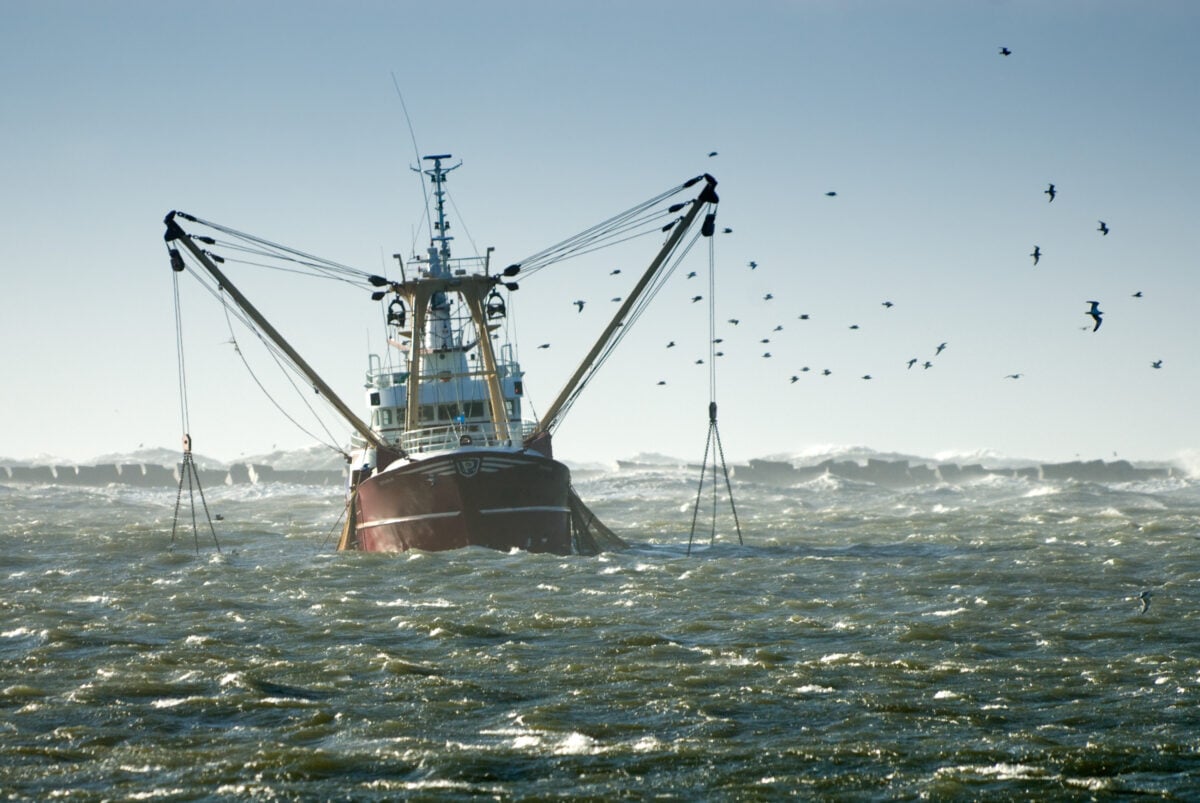
Fishes have long been regarded as forgetful and unintelligent. But the evidence is mounting that they are as or more perceptive and cognitively advanced as other vertebrates. They have the ability to feel emotions and develop cultural traditions, have self-awareness and can recognise different human faces.
The number of fishes caught from the oceans and harvested from fish farms every year is likely around two trillion. The scale of suffering involved is huge. When fishes are caught from the oceans they become exhausted, can be injured, and often suffocate under the weight of thousands of other fishes in a net. Many are left to asphyxiate on the decks of fishing boats and others will be gutted while still conscious.
But fishes caught for food aren’t the only animals who suffer. Bycatch, where other animals are unintentionally caught by fishing nets, is a widespread problem. Species including albatross, North Atlantic right whales, and loggerhead turtles get caught in nets and on fishing lines, pushing some of them to the brink of extinction. Those that become entangled with fishing gear but don’t die from it can suffer serious injuries and ongoing struggles to survive.
Fishing gear also causes lots of harm after it has been discarded. Much of it gets dumped at sea, known as “Ghost Gear.” This is the biggest source of marine plastic pollution and another hazard for marine animals who get tangled in it and die.
The demand for seafood can also come with a huge cost to humans. As vessels travel farther out to sea in search of fishes, fishing companies are trafficking people to crew the boats, where they are forced into slave labor. People might think fishes caught more locally can avoid this problem, but slavery has also been discovered on vessels operating in UK waters.
The environmental costs of eating fishes
Some methods of industrial fishing are environmentally destructive. Bottom trawling is a widespread method that involves dragging huge weighted nets across the seafloor, indiscriminately scooping up every animal in their path. This destroys the seafloor habitat, smashing up root systems and animal burrows. Churned up sediment, changes the nutrient levels in the water and can starve bottom-dwelling plants of light.
According to the UN Food and Agriculture Organization’s 2020 report on the State of World Fisheries and Aquaculture, only 6.2 percent of the world’s fished marine populations “underfished.” This means very few are not being overfished or fished to the maximum level without crashing the population. Meanwhile, Marine Protected Areas (MPAs) that are supposed to protect sea life are failing to do so: 97 percent of the UK’s MPAs allow bottom trawling.
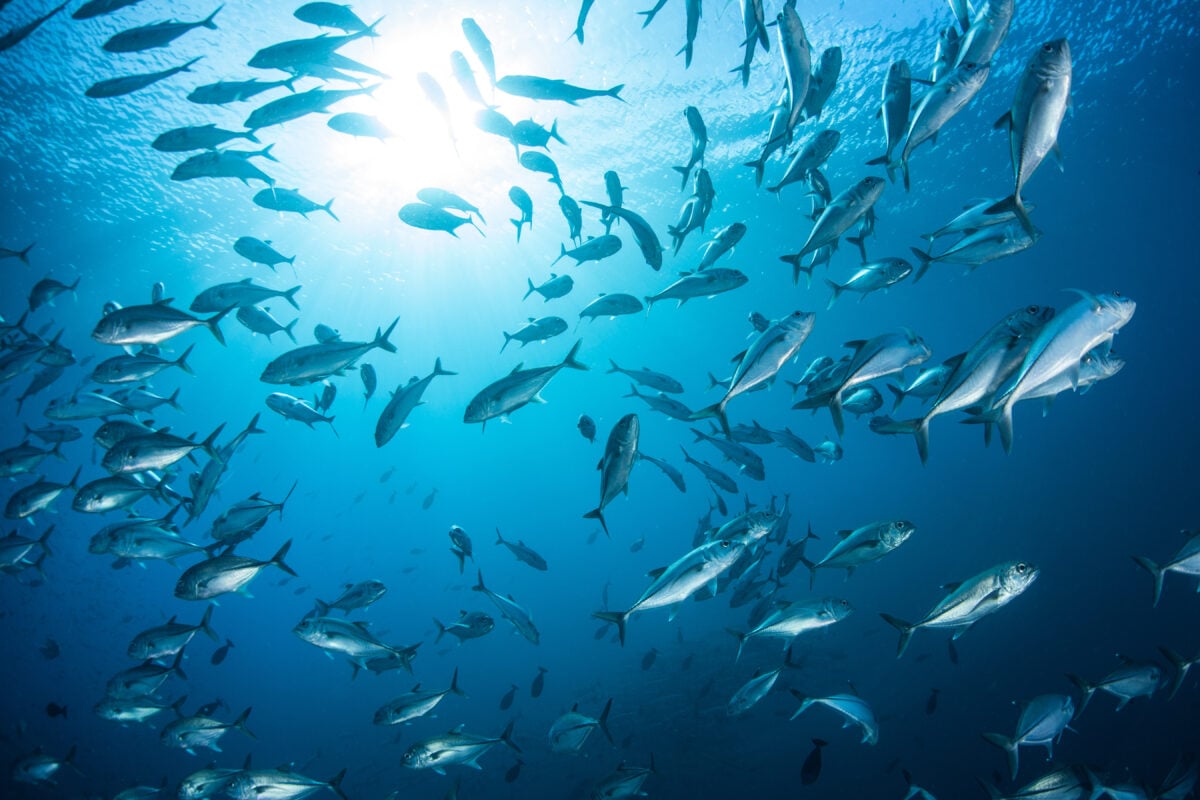
Many people believe aquaculture to be a solution to the environmental problems caused by overfishing, but it is actually exacerbating the problem. Medications and pesticides used to control infections pollute the surrounding marine ecosystem. Feeding the fishes has also put more pressure on wild fish populations, rather than alleviating it, as farmed fishes are fed on fishes caught from the ocean. Farmed fishes also suffer from infections and stress by being kept in overcrowded pens.
Is vegan seafood a more ethical alternative?
It may seem like being a pescatarian – someone who eats fishes but not other animals – is more ethical than being a full omnivore. But this is based on misconceptions about the emotional and cognitive capacities of fishes.
Journalist Garrison Lovely wrote recently about how he became a pescatarian to make his diet more ethical and sustainable, only to realize he had likely done even more harm by making this change. Vegan seafood is a far more ethical alternative to eating fishes, whether wild-caught or farmed.
Where can you buy vegan seafood?
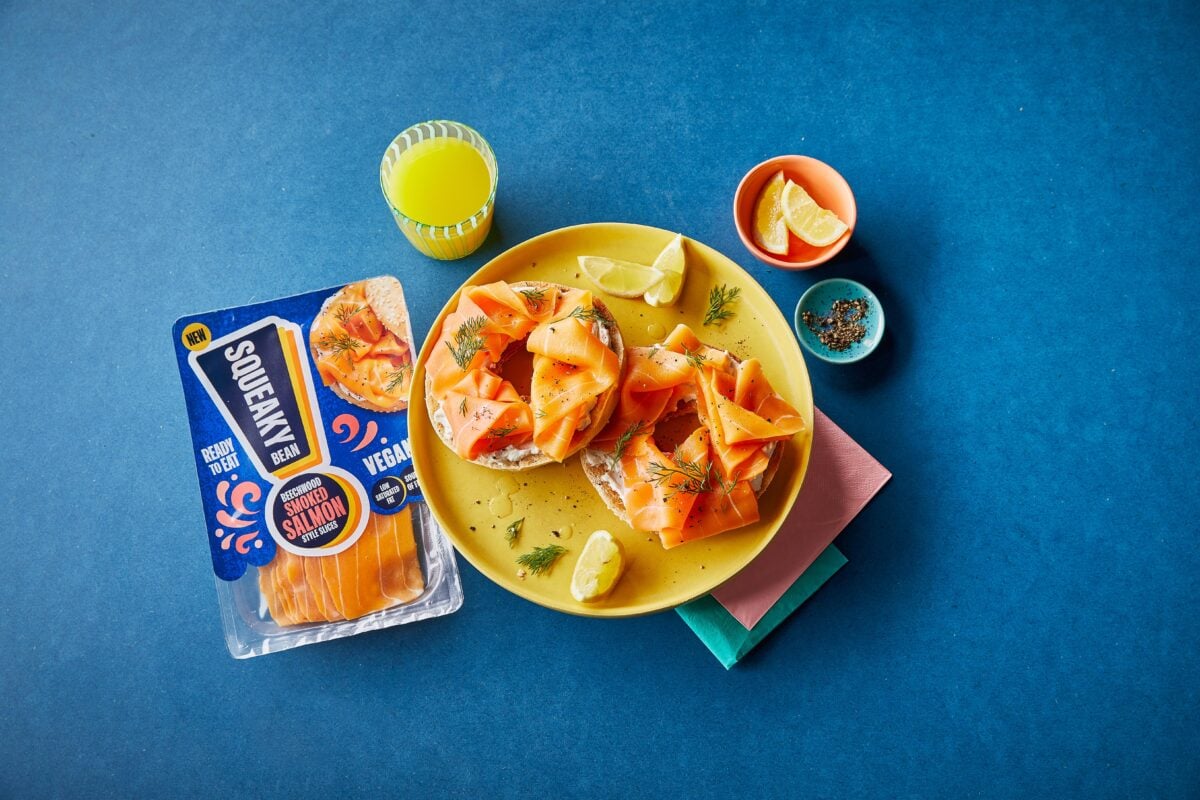
Many large supermarkets now stock various vegan seafood products. There are also several restaurants serving vegan seafood these days too.
UK
In London, Sutton and Sons runs a fully vegan chip shop in Hackney and has lots of vegan options available at its Stoke Newington and Islington branches. Down in Brighton, the No Catch Co offers up vegan versions of many seaside staples including calamari and battered “haddock”. PETA has an extensive list of other restaurants serving vegan fish and chips around the UK.
Sushi take-away chains such as Wasabi are also embracing vegan alternatives, offering vegan salmon in its sushi rolls. For a bit of finer dining, Stem & Glory in Cambridge serves scallops made from king oyster mushrooms and Thai “crab” cakes.
US
Another PETA list rounds up the best vegan seafood on offer in American restaurants. It includes fish tacos at The Owlery in Bloomington, Indiana; seafood hot pot at Vegan House in Phoenix; and mock eel and tofu at The Grange in Providence, Rhode Island.
Best vegan seafood brands
UK
Several supermarkets have created own-brand vegan fish products, such as Aldi’s Plant Menu Fishless Fingers and Sainsbury’s Plant Pioneers No Salmon Fillet, No Chuna, or No Fish Cakes. The No Salmon Fillet is made from jackfruit, king oyster mushroom, and seaweed, providing it with 383mg of omega-3 per 120g serving, plus 29 percent of the daily recommended protein intake for the average adult.
UK sushi company Ima has made a plant-based salmon that is ideal for making sushi and sashimi. Dutch company Vegan ZeaStar has more sushi-style fish and several breaded seafood products. Singapore-based brand HAPPIEE! has launched realistic shrimp and calamari alternatives to be stocked in Tesco and Ocado in the summer of 2023. UK brand Squeaky Bean announced the release of a vegan smoked salmon product in UK supermarkets in September of that year.
US and Canada
There is a huge choice of vegan seafood brands in North America. Good Catch is popular for its crab cakes and fish burgers. With its six-legume blend its products pack up to 21 grams of protein. Canadian company Konscious Foods specializes in frozen vegan seafood products including sushi rolls and poke bowls. Made with ingredients including konjac, seaweed, red quinoa, and pea protein, its Tuna Avocado Roll contains 30 percent of the daily recommended iron intake, 11 percent of fiber, and 6 percent of potassium. It plans to expand its reach into 4,500 stores across Canada and the US by the end of 2023.
Lily’s Vegan Pantry sells whole vegan lobster made from yam flour, and abalone by vegan company May Wah made of algal and taro protein. BeLeaf makes vegan shrimp that is also served in many restaurants.
*While the English language generally refers to multiple fishes as “fish,” we use the term “fishes” in order to emphasize their individuality.
